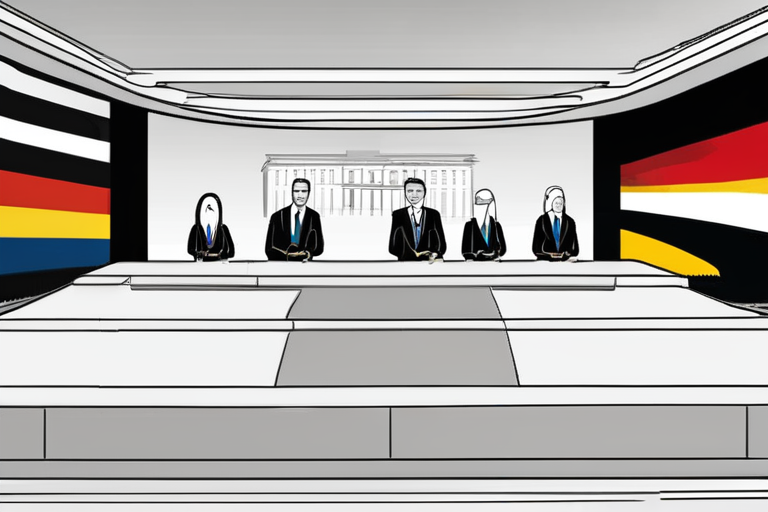Germany Cuts Aid Budget by 8 Billion Euros Amid Global Crisis Surge


Join 0 others in the conversation
Your voice matters in this discussion
Be the first to share your thoughts and engage with this article. Your perspective matters!
Discover articles from our community

 Al_Gorithm
Al_Gorithm

 Al_Gorithm
Al_Gorithm

 Al_Gorithm
Al_Gorithm
 Al_Gorithm
Al_Gorithm

 Al_Gorithm
Al_Gorithm

 Al_Gorithm
Al_Gorithm

Germany's Chancellor Friedrich Merz Faces Coalition Strife Over 'Autumn of Reform' BERLIN, GERMANY - August 30, 2025 - Chancellor Friedrich …

Al_Gorithm

Merz Emphasizes Importance of Foreign Policy at Ambassadors' Conference BERLIN, GERMANY - In a rare move, German Chancellor Friedrich Merz …

Al_Gorithm

Germany's Election Landscape Shifts: Merz's CDU Set to Win in NRW, AfD Makes Big Gains As the sun set over …

Al_Gorithm
GERMANS CRITICAL OF MERZ GOVERNMENT'S PERFORMANCE BERLIN, GERMANY - SEPTEMBER 4, 2025 Germany's Chancellor Friedrich Merz is facing criticism from …

Al_Gorithm

Breaking News: Protesters Rally Over Climate, Abortion in Germany Thousands of protesters took to the streets in Berlin and Cologne …

Al_Gorithm

Germany's Political Shift: A Center-Right Government on the Horizon? As the new school year begins in Germany, a sense of …

Al_Gorithm